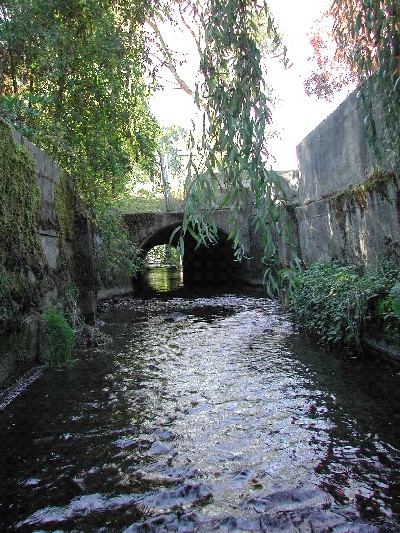The next meeting of the Cambridge Entomological Club will take place Tuesday, January 14, beginning at 7:30 in room 101 of the Museum of Comparative Zoology, Oxford Street, Cambridge. Dr Bob Smith will present a talk entitled A Heads-up View of Urban Stream Ecology.
Human activities in the watershed and direct alterations to the stream channel can alter the habitat and water quality experienced by fauna living in a stream. Thus, studies examining stream communities along an urbanization gradient typically focus on the links between watershed land-use and in-stream conditions. However, stream organisms are not confined to a single stretch of stream throughout their life. Fish have the ability to disperse long distance through the stream network, and flying insects can disperse long distances across the landscape, unconstrained by the stream network.
Using a combination of field studies and GIS, Dr Smith investigated how dispersal (a regional process) affects patterns of stream biodiversity along a gradient of human influence. His research suggests that human land use across the landscape may impede dispersal and both local (watershed based) and regional (dispersal based) processes are important for controlling community structure in urbanized streams. The mechanisms for how human activities alter regional processes differ between taxa and are related to species life history traits. These findings have important implications for conservation and restoration strategies as well as developing land-use development plans that promote the sustainability of stream ecosystems.
The meeting is free and open to the public. Snacks will be provided and you are also welcome to join us at 6:00 PM for an informal pre-meeting dinner at the Cambridge Common.



